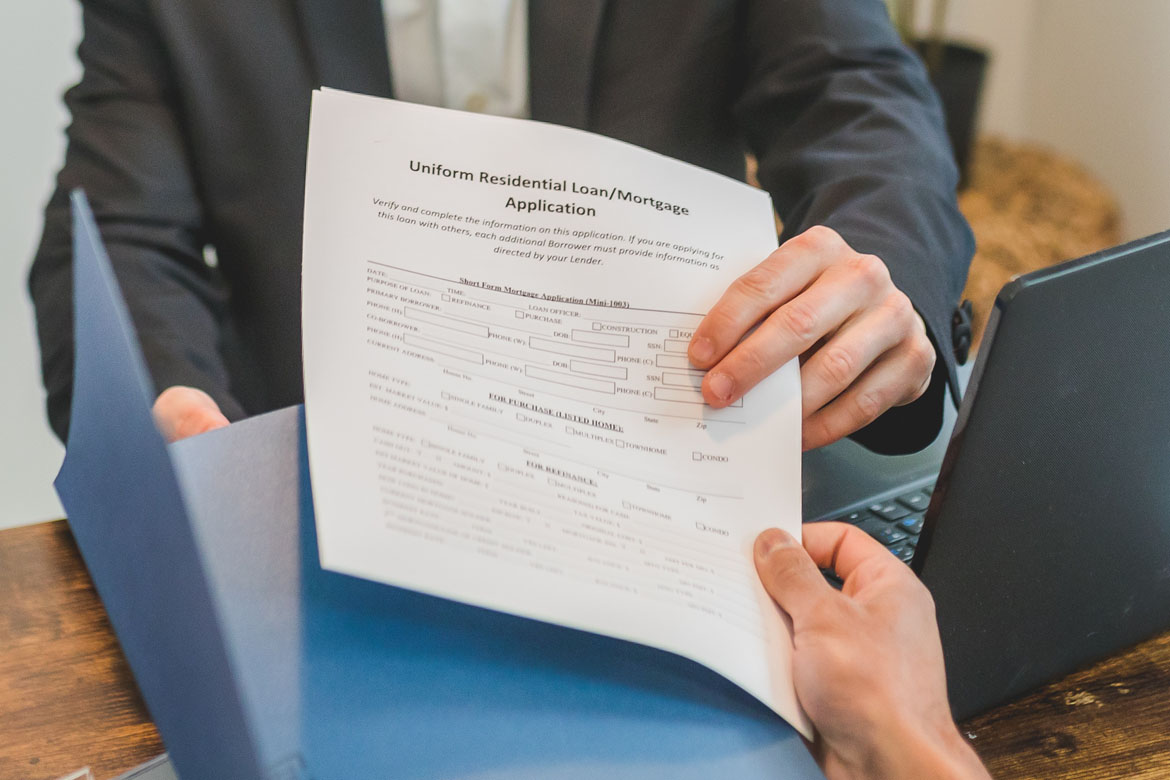Home Financing 101: Understanding Bank Statement Mortgage
When buying a home, one of the first things to figure out is how to finance your purchase. Like most people, you would normally seek out a loan for it.
Now, one option that you can consider is a bank statement mortgage. So, what is this type of loan? Is it the best one for your situation? And, what do you need to get approved?
If you are not familiar with this type of mortgage, then you are in luck! We will answer all your questions about this financing option in this article.
What Is a Bank Statement Loan?
Put simply, a bank statement mortgage is a type of loan that is based on the bank statements of the borrower instead of their income taxes. This means that when you apply for this mortgage program, you will not have to provide proof of your income through tax documents. Instead, your bank statements will be taken into account when determining whether or not you qualify and how much money can be borrowed.
Who Can Take Out This Type of Mortgage?
Generally speaking, anyone who is earning income may qualify to take out this type of loan. From real estate investors and small business owners to entrepreneurs and freelancers, a bank statement mortgage provides a flexible way to finance your purchase without having to jump through the hoops of traditional lending.
So, if you are offering your own services as a means to earn money, you can still purchase a home. There are bank statement loans for self-employed individuals, which can offer the financing solution you need.
Now, comes an interesting question, “Can I take out this type of loan if, currently, I am not generating an income?”
The answer is “no”. Most bank statement loan providers would like to see some form of verifiable income before approving your application. If you are not earning any money, then this is not an option.
How Do These Loans Work?
Because bank statement mortgage loans are based on bank statements, you will have to provide copies of these documents when applying. It is important to note that your records must clearly show deposits and withdrawals over the last two years.
Once the bank has gathered all the necessary information, they will be able to determine your creditworthiness and the amount of money you can borrow.
Benefits of Bank Statement Mortgage Loans
Bank statement loans provide a certain set of benefits that you would not find in other types of mortgages.
1. It Requires Fewer Financial Documents for You to Qualify
As previously implied, a bank statement mortgage does not require you to produce income tax returns and other several documents, unlike other conventional mortgages. This can save you a considerable amount of time in the application process because you will not have to go through the hassle of collecting and submitting these documents. Some lenders would even market themselves to offer “no doc bank statement loans” for this reason.
Plus, this type of loan is typically more lenient than other types of mortgages when it comes to credit scores. As such, if your credit score is not perfect, you still have a chance of qualifying.
2. You Can Use It to Purchase Various Types of Properties
When you use other conventional types of mortgages, you will be restricted to buying certain types of properties. For example, when you take out a government-backed loan, such as an FHA loan, you will be limited to buying homes that you should use as a primary residence. You cannot use it to buy vacation homes!
On the other hand, bank statement loans can be used to purchase almost any type of property, such as a primary residence, a second home, a multi-family home, a vacation house, or an investment property. This means that you will have more flexibility in terms of what kind of property you can purchase.
3. It Allows Re-Financing
If you already own a home, bank statement loans can also be used to refinance your existing mortgage. This is especially beneficial if you are looking to lower your interest rate or get access to some cash through a cash-out refinance.
Being able to re-finance also means that you will have the option to switch your loan for another type of mortgage if you find a better deal down the line. This provides more flexibility and can help you save money in the long run.
4. You Can Apply Even If You Have a High Debt-to-Income (DTI) Ratio
Your debt-to-income ratio, or DTI, is the amount of debt you have relative to your income. If this number is high, it can be difficult for you to qualify for a traditional mortgage. Fortunately, bank statement loans are more lenient when it comes to DTIs. This means that if your DTI is higher than usual, you may still be able to get approved for this type of loan.
How to Calculate Your DTI Ratio
When calculating your debt-to-income ratio, you should add up all of your monthly debt payments (such as credit cards and student loans) and divide this by your gross monthly income. An ideal DTI ratio should be no more than 43%. If you fall within this range, then you should have no problem qualifying for a bank statement mortgage.
5. It Allows for Higher Loan Limits
Although a bank statement mortgage has lenient requirements, it still has a high loan limit. So, if you are looking for a high-value mortgage, it is the ideal option for you.
Plus, even if your bank statements do not show enough income to qualify for this type of loan, some lenders may still approve your application if they can verify that you have access to other sources of income.
6. You Can Apply Even If You Do Not Have a Steady Stream of Income
If you are a freelancer, independent contractor, or self-employed, there might be some gaps in your earnings history due to inconsistent income payments. But with this type of mortgage, there is no need to worry. As long as you can provide bank statements with recent records of deposits, you would still be eligible.
Drawbacks of Bank Statement Loans
While this type of financing offers some benefits, bank statement loans explained by The Mortgage Shop also entail some drawbacks that you need to know.
1. Lower Availability
It is important to remember that not all lenders offer bank statement mortgages. As such, you may have to do some research and shop around to find a lender that provides this type of loan.
2. Higher Interest Rates
More often than not, bank statement mortgages come with higher-than-average interest rates. This is because these loans are riskier for lenders.
Thus, if you decide to opt for this loan program, it is essential to compare offers from different lenders and make sure you get one at a competitive rate.
3. Higher Down Payments
Along with the potential of higher interest rates, these types of mortgages also typically require a higher down payment. This means you may have to put down more money upfront in order to qualify.
4. Non-Qualified Mortgage (Non-QM) Basis
Lastly, as this type of mortgage is categorized as a non-QM loan, it is not regulated. This means that lenders have more freedom when it comes to setting terms, fees, and interest rates. Therefore, you should be extra careful when choosing a financing option as there might be hidden costs associated with it that could make it more expensive in the long run.
As you can see, bank statement financing can offer excellent benefits. However, it is also important to remember that it has some drawbacks.
But if you look at it, its benefits easily outweigh the risks. All you have to do is make sure to read through the lender's terms and conditions and understand what they entail before applying. That way, you can make a better-informed decision and secure the financing that best fits your needs when buying a home.
How to Increase Your Chances of Getting Approved

Like taking out bank statement business loans, getting a bank statement mortgage can be tricky. But luckily, there are some steps that you can take to increase your chances of having your application approved.
Know your credit score.
First and foremost, it is important that you know exactly where you stand with credit before applying for this type of loan. By doing so, you will have a better idea if a bank statement program is the right option for you or not.
Plus, it would also help ensure that any applications you submit are approved by lenders quickly.
Fix any errors on your credit report.
If your credit score is good but still lower than usual, then there might be errors on your credit report that are affecting it negatively. That is why it is crucial to check your report for any mistakes and fix them immediately.
This way, you can increase your credit score and make yourself more bankable for bank statement financing.
Pay down debts.
If you have outstanding debts, making sure to pay them off before applying could help boost your chances of getting approved by lenders.
Conclusion
A bank statement mortgage is a powerful and flexible financing option for people who do not qualify for traditional mortgages. However, you should take the time to do your research and compare offers from different lenders before signing any paperwork. That way, you can ensure that you get a financing solution with the best terms and conditions for your situation.
For more useful tips and information that you can use in daily life, check out our other posts!








